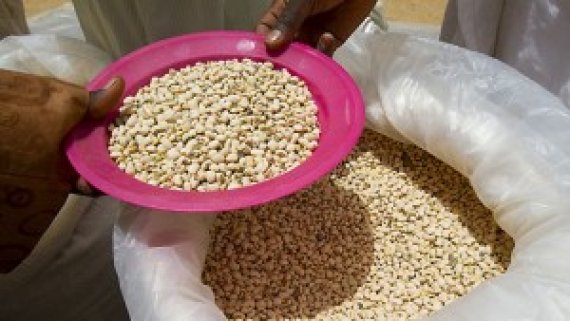Abizari provided a cowpea meal to 240 school children in the north of Ghana. For half of the children the cowpea meal was fortified with iron EDTA compound. Fortification resulted in a 47% reduction in the prevalence of iron-deficiency anemia. Previous research in other African countries with iron supplements gave similar results. The novelty of Abizari’s research was the use of cowpeas as fortification vehicle to reduce iron-deficiency. Cowpeas contain a lot of phytic acid and polyphenols that inhibit iron absorption. Adding the EDTA compound will overcome this harmful effect and improve iron status of the children, says Abizari. The PhD student, who did his research at the Human Nutrition division, also checked whether the iron supplement would cause more malaria among the school children. Last year other Wageningen researchers found that iron supplements may increase the chance of severe malaria. The reason is that the plasmodium parasite, which causes malaria, also benefits from the improved iron status in the children’s blood. Abizari found no increase in the incidence of malaria, but didn’t measure the severity of the malaria. Adding iron to cowpea meals is a good way to decrease malnutrition among school children in the northern part of Ghana, says Abizari, because cowpea contains a large amount of proteins and is affordable for poor people. His findings are of interest for the School Feeding Programme in Ghana.
Fortified cowpea decreases iron-deficiency anemia
Adding iron as supplement to cowpea flour results in a huge decrease in iron-deficiency anemia among Ghanaian school children, states PhD student Abdul-Razak Abizari in a publication in the Journal of Nutrition.

